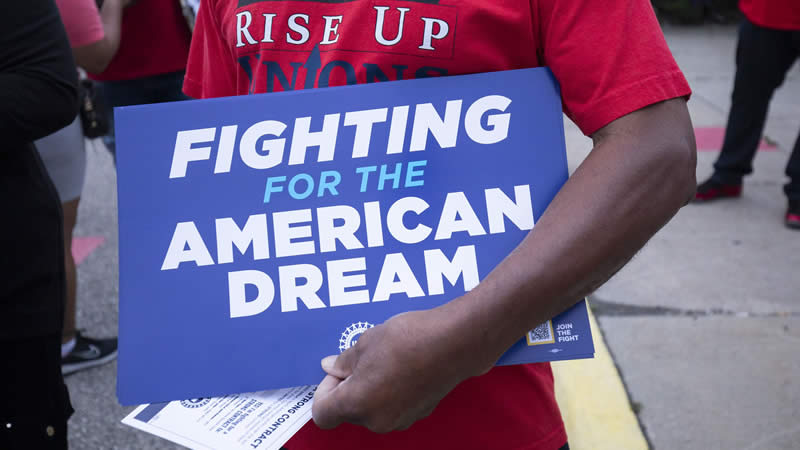As the strike by the United Auto Workers (UAW) against major automakers Ford, General Motors, and Stellantis (Chrysler and Dodge) enters its third week, Hampton Roads is bracing for potential repercussions, including rising vehicle prices, delays in repairs, and potential shifts in the automotive industry.
While an agreement has been reached with Mack Trucks, the UAW remains at odds with the Detroit Three automakers. This strike, which has seen more than 25,000 auto workers on picket lines since September 15, is not limited to affecting those directly involved; it holds broader implications for the automotive landscape.
Peter Shaw, Tidewater Community College professor emeritus of Business Administration, explains the strategic approach of the UAW strike, affecting supply chain plants, assembly plants, and dealerships. In the short term, with the industry having approximately a 55-day supply, the strike may not pose an immediate problem. However, if it continues, production slowdowns could lead to reduced vehicle deliveries, subsequently driving up prices—potentially by 10% if the strike persists for a month, according to CBS News.
This price increase may incentivize consumers to keep their vehicles longer, making vehicle maintenance crucial. Gina Wood, the general manager for AAA Car Care Center in Virginia Beach, highlights the importance of routine maintenance, emphasizing tasks such as checking antifreeze levels and monitoring tire pressure to ensure vehicle longevity and performance.
Furthermore, access to automotive parts remains constrained since the pandemic, and the ongoing strike may exacerbate this challenge. If dealerships struggle to obtain essential parts, it could disrupt local consumers’ ability to get their vehicles repaired promptly.
This strike marks a historic moment, as it is the first time the UAW has simultaneously gone on strike against all three major automakers. Shaw suggests that it could potentially influence the industry’s future, pushing automakers to prioritize technology over labor. He notes that the number of auto workers has significantly decreased over the years, signaling a shift toward more technologically oriented solutions.
Amid the uncertainties of ongoing negotiations between the UAW and the Big Three, Shaw advises vehicle owners to consider scheduling maintenance promptly.



